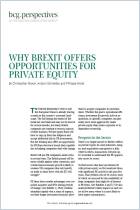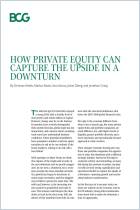
Read or listen offline
Recommendation
Taking a minority shareholding is becoming more common for large private equity (PE) funds, according to Boston Consulting Group professionals Antoon Schneider and Cristina Henrik. As PE firms seek to deploy roughly $1.2 trillion of uninvested capital, they’re more open to atypical deals, while sellers like the control they retain and the know-how they gain from minority investors. However, PE funds need to do their homework to ensure the success of their minority stakes. getAbstract recommends this study’s insights on this little-reported phenomenon to private equity investors as well as to companies considering working with them.
Take-Aways
About the Authors
Antoon Schneider is a managing director at the Boston Consulting Group, where Cristina Henrik is a principal.




















Comment on this summary or 开始讨论